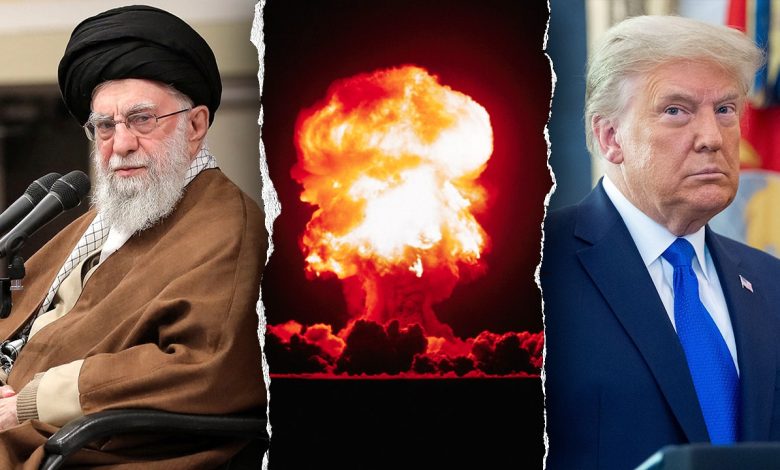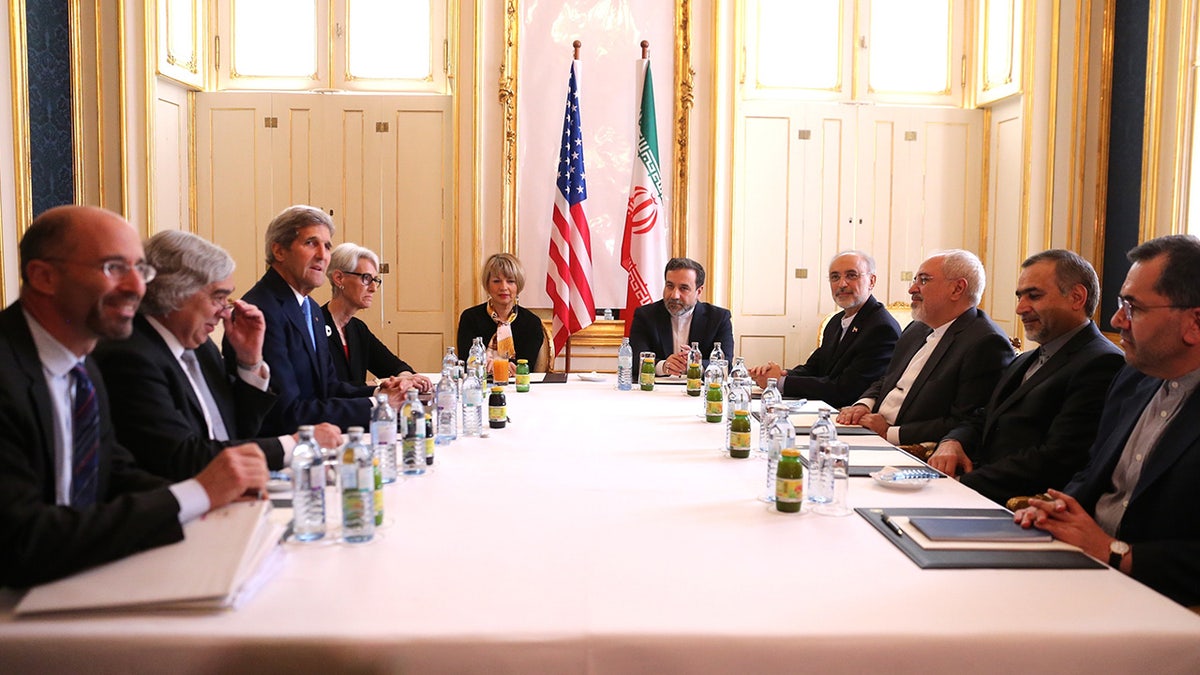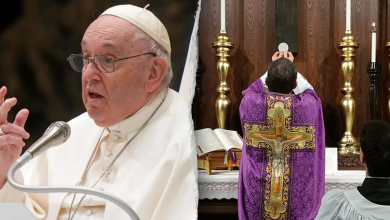US touts progress in nuclear talks with Iran, third round of negotiations to come

Trump threatens to abandon Russia-Ukraine peace talks
Fox News senior strategic analyst Jack Keane joins ‘America’s Newsroom’ to discuss the latest on the Trump administration’s negotiations with Iran over its nuclear program and the president’s effort to end the war in Ukraine.
The U.S. and Iran have agreed to meet for a third round of talks later this week in Muscat, Oman, after they met in Italy with Omani intermediaries to discuss Iran’s nuclear program on Saturday.
Details of the negotiations have not been released and any concrete progress in ending Iran’s nuclear program remains unclear, though a senior administration official told Fox News that “very good progress” had been made.
“Today, in Rome, over four hours in our second round of talks, we made very good progress in our direct and indirect discussions,” the official said Saturday. “We agreed to meet again next week and are grateful to our Omani partners for facilitating these talks and to our Italian partners for hosting us today.”
TRUMP SAYS IRAN MUST DITCH ‘CONCEPT OF A NUCLEAR WEAPON’ AHEAD OF MORE TALKS
An Iranian newspaper with a cover photo of Iran’s Foreign Minister Abbas Aragchi and U.S. Middle East envoy Steve Witkoff, in Tehran, April 12, 2025. (Majid Asgaripour/WANA (West Asia News Agency) via Reuters)
Reports suggested that Middle East envoy Steve Witkoff and Iranian Foreign Minister Abbas Araghchi at some point in the negotiations spoke face-to-face, the second time in as many weeks.
But the negotiations have not solely been “direct” between Washington and Tehran as President Donald Trump earlier this month insisted they would be, which Iran flatly rejected – suggesting some form of compromise was reached regarding the format of the discussions.
What Witkoff discussed directly with his Iranian counterpart remains unknown.
Araghchi also expressed some optimism in his review of the negotiations from Italy, though his perspective appeared slightly more muted.
“Relatively positive atmosphere in Rome has enabled progress on principles and objectives of a possible deal,” he wrote in a post on X. “We made clear how many in Iran believe that the [Joint Comprehensive Plan of Action] JCPOA is no longer good enough for us. To them, what is left from that deal are ‘lessons learned.’ Personally, I tend to agree.”
COL. RICHARD KEMP DOUBTS TRUMP NEGOTIATIONS WITH IRAN WILL ‘ACHIEVE WHAT NEEDS TO BE ACHIEVED’

Technicians work inside a uranium conversion facility on March 30, 2005, near Isfahan, Iran. (Getty Images)
“The initiation of expert level track will begin in coming days with a view to hammer out details,” Araghchi said. “After that, we will be in a better position to judge. For now, optimism may be warranted but only with a great deal of caution.”
It remains unclear how this round of negotiations to end Iran’s nuclear program will differ from the original JPCOA, an Obama-era nuclear deal which Trump abandoned during his first term, though the president and other security experts have voiced a sense of urgency in finding a solution in the very near future.
But experts have warned these talks need to be far more encompassing than the JCPOA given the current advanced state of Iran’s nuclear program, and they need to happen very soon.
“The speed with which technical talks have been agreed to is worrying for those who hope to avoid a repeat of 2013 and 2015, as are allegations of Iran’s offer of a three-step interim or phased proposal for a deal,” Iran expert and senior fellow at the Foundation for Defense of Democracies, Behnam Ben Taleblu told Fox News Digital.
“It would be the height of strategic malpractice and a political own goal to allow the Islamic Republic to force America under the Trump administration into a deal that only slightly modified the accord that Trump rightly criticized and walked away from in 2018,” he added.
Similarly, retired Gen. Jack Keane, a Fox News senior strategic analyst, many security experts are watching these negotiation attempts with “real concern” because “Iran in 2025 is not the Iran in 2015 when that first nuclear deal was made.”

Secretary of State John Kerry, third from left, and other U.S. officials meet with EU and Iranian officials for nuclear talks in Vienna, Austria, June 30, 2015. (Pool/Siamek Ebrahimi/Anadolu Agency/Getty Images)
CLICK HERE TO GET THE FOX NEWS APP
“The difference is that Iran has the capability to manufacture advanced centrifuges which can enrich uranium from zero to weapons grade in just a matter of weeks,” Keane said.
Essentially, this means the U.S. must not only persuade Iran to get rid of its near-weapons-grade enriched uranium – enough to produce five nuclear weapons if further enriched – but also dismantle its manufacturing capabilities.
“The other thing that is different in 2025 – they have ballistic missiles that can deliver the weapon,” Keane added. “It remains to be seen what’s going to be in the deal.”



